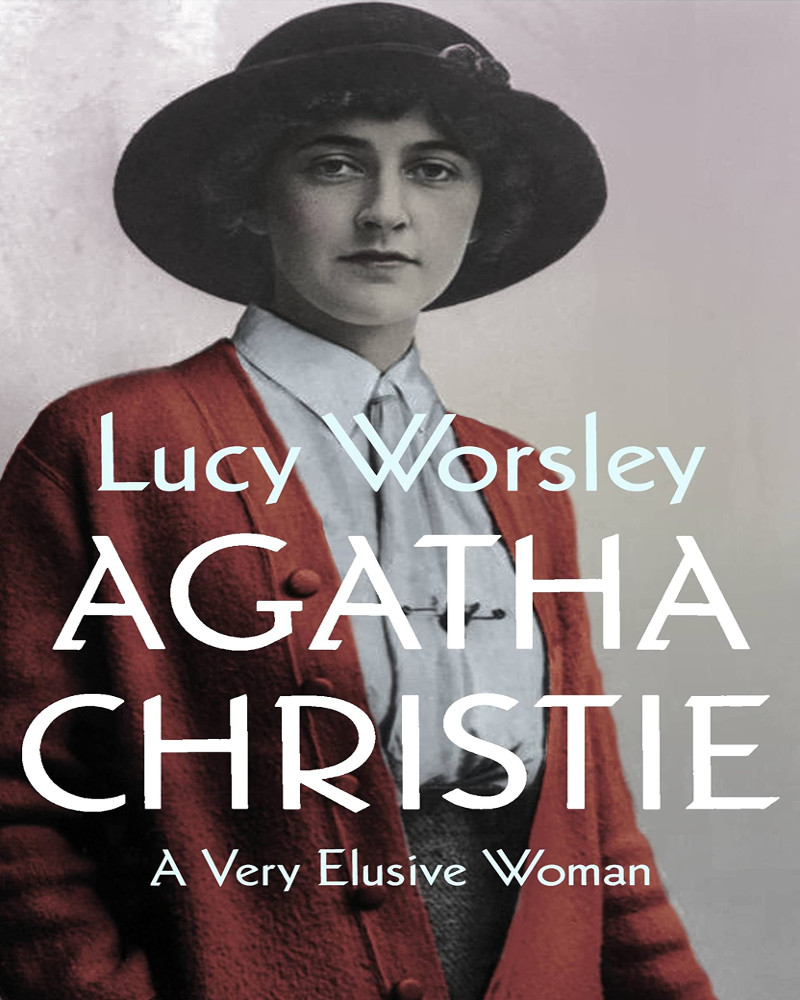In choosing to read this biography, I was interested as much in the biographer as the subject. Author Lucy Worsley is a British historian and a familiar face on several BBC/PBS shows. I have always found her presentations factual and whimsical. She has previously published books on Jane Austen and Queen Victoria, so she knew how to tackle the life story of a complicated, often discounted woman like Agatha Christie.
Christie was an enigma. She downplayed her talent, her success, her abilities, and her popularity. Worsley tells us this in the preface and reinforces it throughout the book. Over the course of her long career, she published 66 detective novels, numerous short story collections and plays, even her own autobiography. She published her first book in 1920 and her last in 1976. Only the Bible and the works of William Shakespeare have surpassed her in sales.
One of the things I enjoyed about this biography is the global approach Worsley uses, taking in the history of the world around Agatha and how that affected her life. She was born in the 1890s into privilege in southwestern England. By the 1900s her family had lost their fortunes and it is imperative that she make a ‘good marriage’. The author takes us through her debutante phase and early engagement to the right sort of man. Then she meets Archie Christie, a dashingly handsome young pilot who sweeps her off her feet.
It was her disappearance in 1926 that truly captured the world’s attention and is still speculated about today. Worsley said in a recent interview with the Toronto Public Library that she did not find it mysterious at all. Yes, it is true that her disappearance and subsequent reappearance caused a media frenzy in the day. This type of frenzy seems commonplace in our age of tabloids, paparazzi, and social media, but in 1926 it was unusual and sensational. There was so much speculation about the reasons behind her actions at the time. Was she trying to frame her husband after discovering his infidelity? Was she trying to heighten interest in her newest book? Was she dead or alive? Worsley claims to have a number of statements Christie made about these events that point to a new understanding of the crisis. Personally, I found Worsley’s reasoning quite sound.
I also found Christie’s second marriage to Max Mallowan and their interest in archaeology very interesting. They travelled and worked in Iraq extensively. It is easy to see how her novels Death on the Nile and Murder on the Orient Express came about. As well as how so many antiquities from around the world wound up in the British Museum! Max’s archaeology digs became a great passion of Christie’s.
While she was never given many literary accolades for her work, Agatha Christie had and still has universal and international appeal. But the Agatha that Worsley allows us to glimpse is a woman of her time. Many reviewers of this book found the book either repetitive of earlier works on Christie or padded with details not related to the writing of her novels. Since I have never read another biography about her, I cannot say if this is accurate. And since I found this global approach of placing Agatha in the world she lived in appealing, those ‘padded details’ were intriguing. As a reader, I prefer this softer approach to biography. A readable book, rather than a scholarly or academic treatise, finds a place on my bookshelf.











